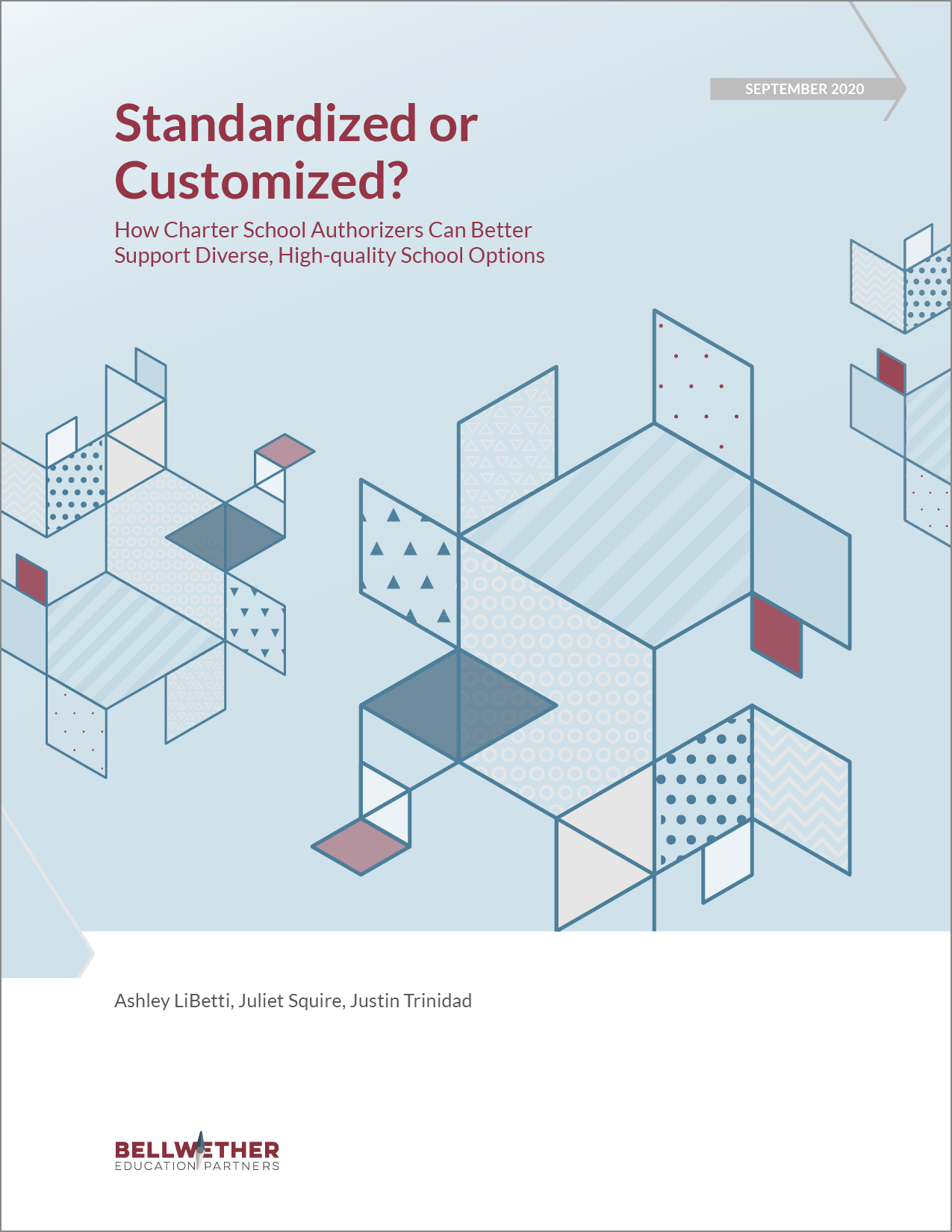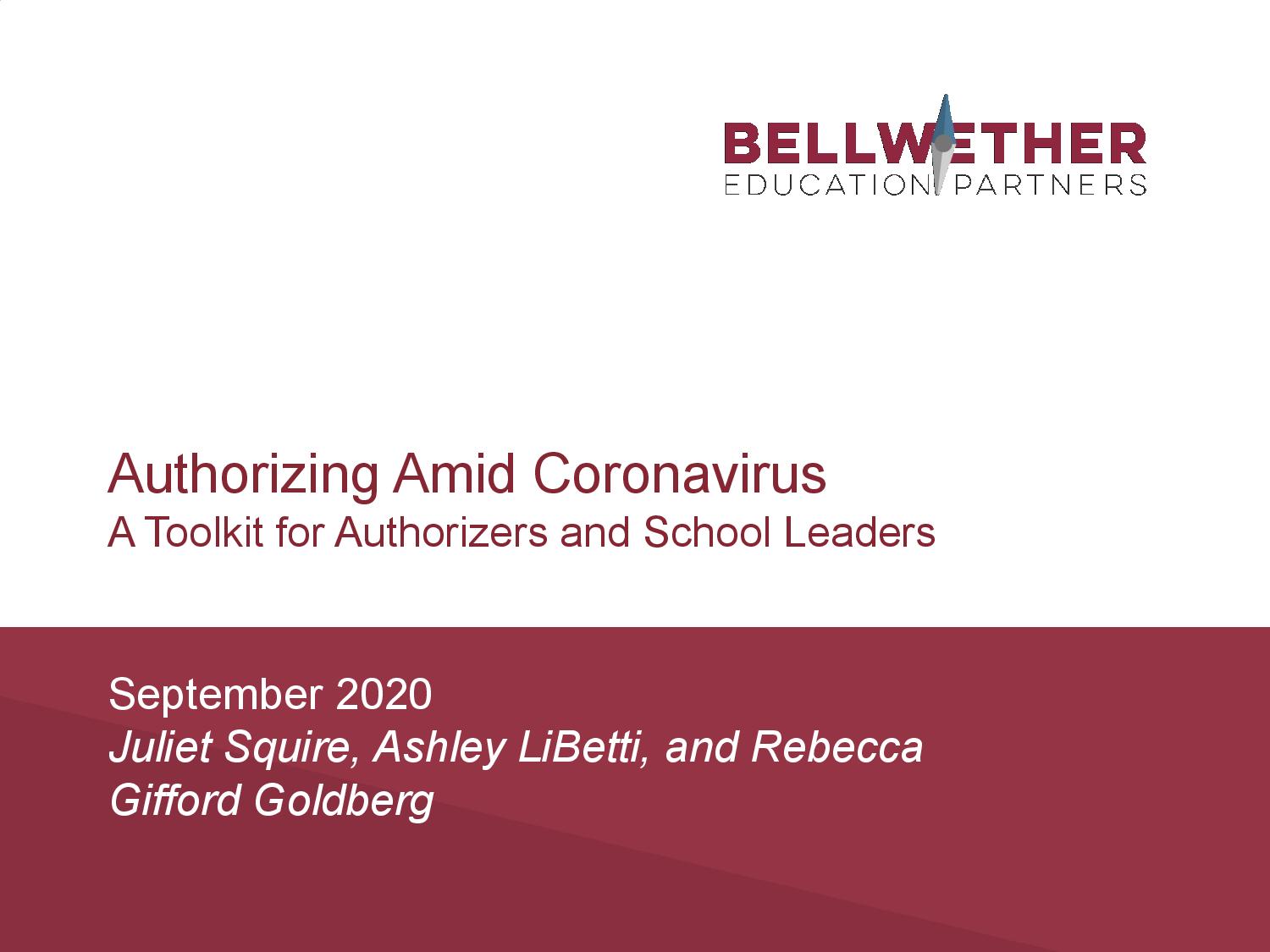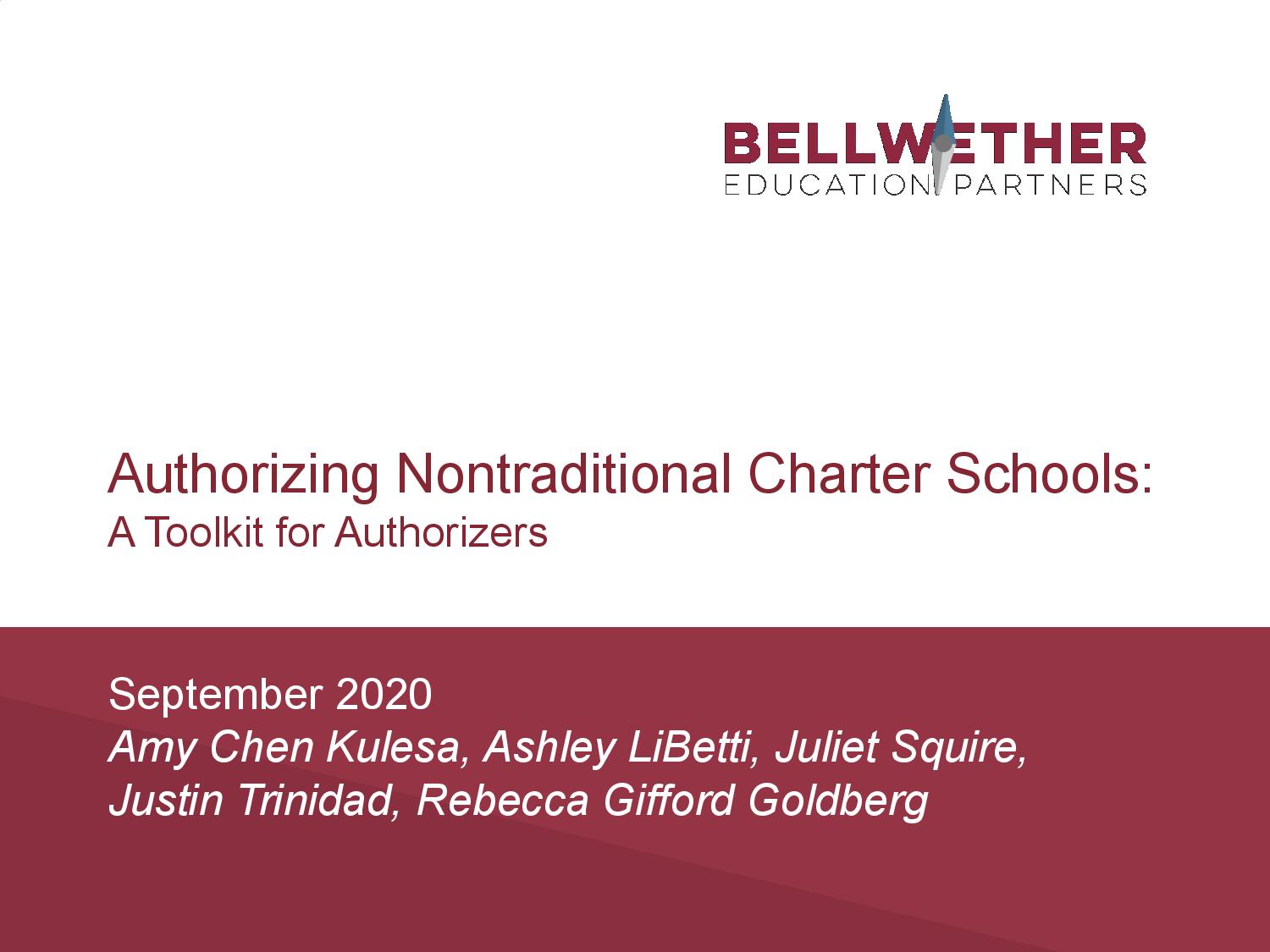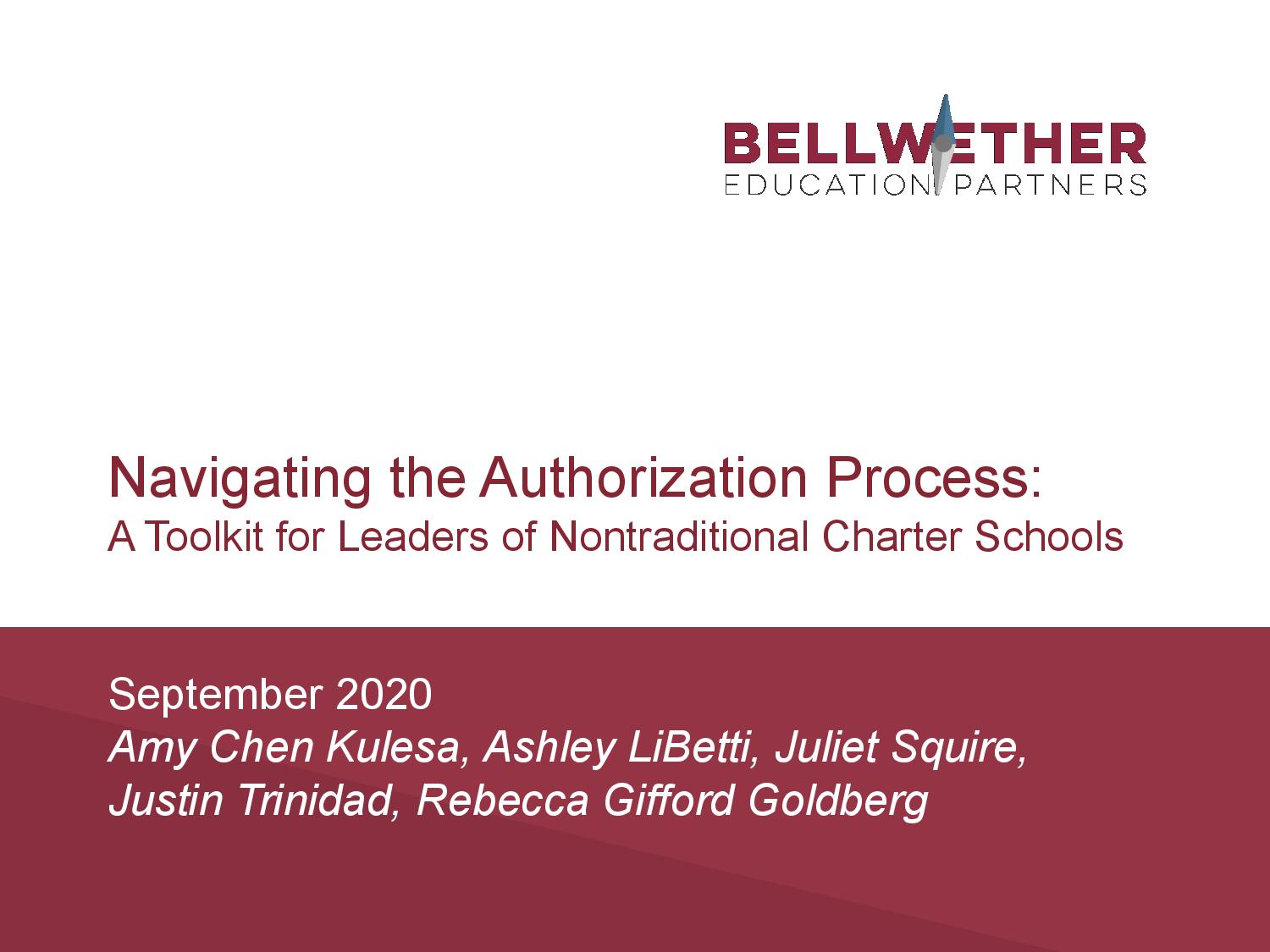One of the greatest promises of the charter school movement has been the potential to create diverse school models to meet the varied needs of children, families, and communities. As policy makers and charter leaders have recognized the need to hold charters accountable for strong performance, however, there has been a move towards more standardized ways of evaluating the potential and performance of schools. More consistent standards have elevated quality in the sector, but also created potential obstacles for nontraditional schools, including dual language, inquiry-based, and competency-based models.
And now, COVID-19 has upended how charter schools across the country are operating and how authorizers hold schools accountable for outcomes. Since authorizers and school leaders are still responsible for ensuring that students and families have access to high-quality school options, they must work together to uphold each end of the charter bargain.
This report and related toolkits shed light on what authorizing looks like in practice when fostering a diversity of school models and holding them accountable for quality. Four charter authorizers are profiled in this work: Colorado Charter Schools Institute, DC Public Charter School Board, State Charter Schools Commission of Georgia, and State University of New York Charter Schools Institute. In addition, “Authorizing Amid Coronavirus: A Toolkit for Authorizers and School Leaders” offers lessons and recommendations for authorizers during COVID-19.
Download Standardized or Customized? here or read it in the viewer below.
A separate release, available September 8, explores similar issues. Addressing Data Gaps During a Pandemic: How Authorizers Can Continue to Hold Charter Schools to High Standards, produced with the National Association of Charter School Authorizers, looks at what new and better measures charter school authorizers can use to ensure student learning, school performance, and quality.



